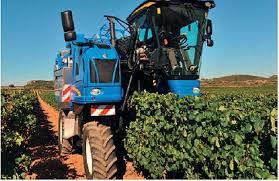#The opportunity
There are so many agriculture technology projects out there. Momentum is building to propel the farmer forward into the 21st century of technology use. Yet, while ambitions are big, and the budgets are accordingly high, farmers are not yet buying into the digital age of farming.
One of the recurring problems is that agriculture technology tends to get designed for the possibilities that technology can offer, but it generally doesn’t meet farmers at the level of use and understanding where they currently are. This disconnect with the learning curve that the farmer still has to traverse, is causing a barrier for adoption of technology solutions.
Farmhack.nl was founded by Anne Bruinsma, to take on this specific problem. Farmhack.nl aims to create a much needed human-centered force in technology design for farmers, by organizing small and dedicated on-farm hackathons, addressing topics that the hosting farmer is concerned with specifically. FarmHack.nl challenges design and technology related talent to come up with practical solutions for acute on-farm problems.
#Common goal – how will it make a difference?
Through these challenges, Farmhack.nl aims to reveal the relevant design patterns for technology solution design. This is pulling in interest from development firms, and from organizations that support technology development in agriculture, like the Global Open Data for Agriculture and Nutrition (GODAN)
Farmhack.nl is starting off in Holland with the intent of developing a self-propagating hackathon framework, that will spread on-farm hackathons throughout the world.
#Organisation goals
Farmhack wants to increase the likelihood that the hackathon challenges will turn into viable solutions, that are able to spread. It aims to support projects to develop further, through pulling in support from development houses, other agribusiness stakeholders as sponsors, and entrepreneurship education for the teams that have worked on the hack initially.
Source Institute is dedicated to developing, timely, relevant, and accessible education to even the most challenging environments. Source’s designs for self-propagating education can be integrated into the FarmHack concept.
#Strategic relevance
Data, and technology in agriculture are currently mostly underutilized. Farmhack.nl’s mission is to lay the groundwork for designing technology for agriculture, making the case for en open, ecosystem-based innovation approach (much like Code for America does for the US government). Stakeholders involved in developing technology solutions for farmers can learn first hand how technology can be designed to fit the needs and requirements of farmers.
At Source Institute, we see this as a very relevant early-stage development feeding ground for (notably hardware) technology advancement and entrepreneurship in the agriculture sector. Source can help establish FarmHack’s model, and help it spread, for instance by introducing it to our work on hardware startup acceleration, and network on the African continent.
#Resources
FarmHack.nl is a non-profit initiative, running at-cost in its first iteration.
Budget
FarmHack has received a subsidy, and sponsorships to cover the costs for organizing a series of 4 hackathons. As such, Source is also an in-kind sponsor to this initiative
Timeline
The Hackathons will be organized in June 2016. And the winners of each hackathon will be supported until October, where they will pitch their progress during the Agri meets Design at the Dutch Design Week in Eindhoven. In July, Source will provide a bootcamp, and some remote check-ins after to mentor on progress.
People needed
Bart is going to host the bootcamp. A position for a volunteer from Source fellows is still open.
Both the volunteer and Bart will provide the remote follow-up, through check-in calls, and the Source community forum.
Outcomes
- 4 hacks, which have developed a strong business viability
- A design for self-propagating education material, that can be distributed with the FarmHack.nl hackathon package
- New linkages for FarmHack to Source’s global entrepreneurship communities
#Description
Farmhack have found 4 challenging farmers, which will result in 4 decentralised hackathons, with 3 dedicated teams working on each one. A mobile unit will contructed to bring the required techinfrastructure to the farm locations.
Winning 4 teams will be offered a 1-day bootcamp and some mentoring after. The contestant will have a pitching final during Agri Meets Design at the Dutch Design Week in Eindhoven.

 ) . Anyhow, I will not be around in July hence I will not be able to help on ground.
) . Anyhow, I will not be around in July hence I will not be able to help on ground. - so I’m in :-p
- so I’m in :-p